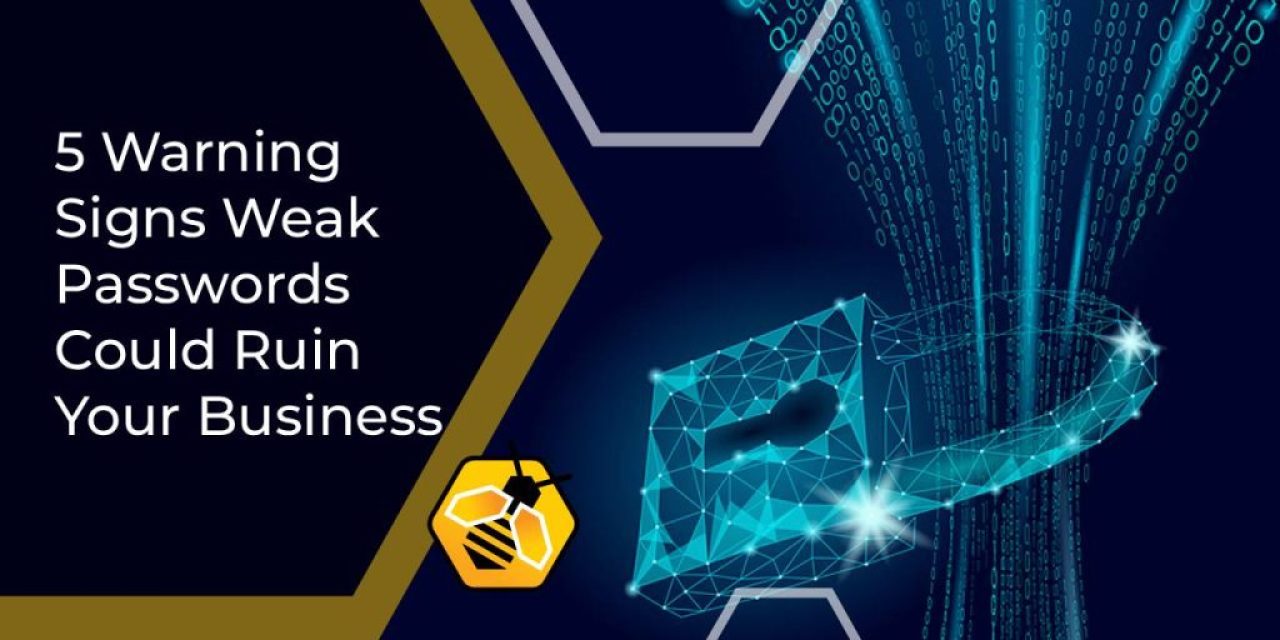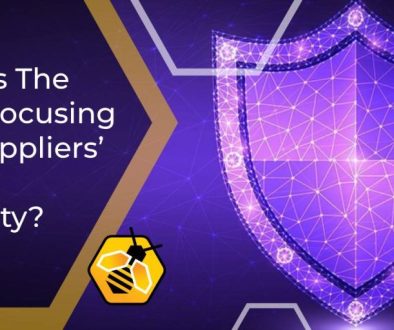5 Warning Signs Weak Passwords Could Ruin Your Business
The NCSC reports that there were an estimated 19,000 ransomware attacks on UK businesses in 2024, with a typical ransom demand of around £4m. More worrying still, it’s thought that about a third of companies pay the ransom for the return of the stolen data, although the data isn’t always fully returned even after payment.
The attacks can sometimes have devastating consequences. For example, BBC News reports that just one weak password was all it took to bring down a 158 year old company and put 700 employees out of work.
KNP, a Northamptonshire transport company, identified an employee’s easily guessable password as the weak link that allowed hackers to gain entry to the computer system and encrypt all of its internal data. The firm, which runs about 500 lorries, was unable to continue operating.
The ransom note read: “If you’re reading this it means the internal infrastructure of your company is fully or partially dead…Let’s keep all the tears and resentment to ourselves and try to build a constructive dialogue.” A specialist ransomware negotiation company estimated that the sum could be £5m, which the company could not find.
The company said that its IT systems complied with the industry standards, but this wasn’t enough to prevent the attack. This is a wake up call for all businesses who might think that their IT is up to scratch, because just one single weak password could be all it takes to let in the hackers.
Here are five warning signs your business might be at risk, and what you can do to fix them.
You are still relying on passwords alone
If your employees use only usernames and passwords to access company systems with no additional layers of security, the risk of a ransomware attack will be much higher. Hackers hone in on single-factor authentication to steal passwords through techniques such as phishing, credential stuffing, or specific dark web password hacking tools.
To reduce your vulnerability, implement Multi-Factor Authentication (MFA) or Two-Factor Authentication (2FA) across all critical systems. Even if a password is compromised, the additional authentication step can stop attackers in their tracks.
Weak password policies
Employees who are free to choose their own passwords will generally use short and easy to remember words or sequences of numbers. They also reuse their passwords across multiple systems outside of your organisation, increasing your risk if a breach occurs elsewhere.
To guard against this, enforce strict password policies that involve a complex mix of upper/lowercase letters, numbers, and special characters. Require password changes every 60–90 days, and use a password manager so staff don’t have to remember multiple strong passwords.
Patchy cybersecurity training
Human error is one of the biggest cybersecurity risks. If your employees aren’t trained to detect suspicious activity such as phishing emails that trick users into revealing credentials, then you’re gambling with your company’s security.
Offer quarterly cybersecurity awareness training, and include real-life examples of phishing attempts, tips for spotting fake emails, and guidance on what to do if they suspect a threat. To really raise your game, run regular phishing simulations to test employee readiness.
Not monitoring for unusual logins or behaviour
If there’s no system in place to detect if someone logs in at 3am from another country, this could let a stealthy attacker in to wreak havoc before you even notice. If you’re not monitoring system activity, you may not even notice until it’s too late.
Use a Security Information and Event Management (SIEM) tool or partner with a Managed IT Service Provider who can monitor access attempts, unusual login times, and geographical anomalies in real time. Early detection is key to stopping breaches before they escalate.
No breach response plan
If you don’t have a clear, tested plan for responding to a password breach or ransomware attack, the consequences could be catastrophic. Create a documented Incident Response Plan that includes:
- Who to notify
- What steps to take
- How to isolate compromised systems
- Who’s responsible for what
Test the plan regularly so your team knows exactly what to do under pressure.
The collapse of a historic company, as well as the recent attacks on major retailers such as M&S, show that the need to be proactive about your cybersecurity is greater than ever. At Bee IT solutions, we provide tailored cyber security support services across a wide range of sectors, from education and healthcare to construction, accounting and much more.




